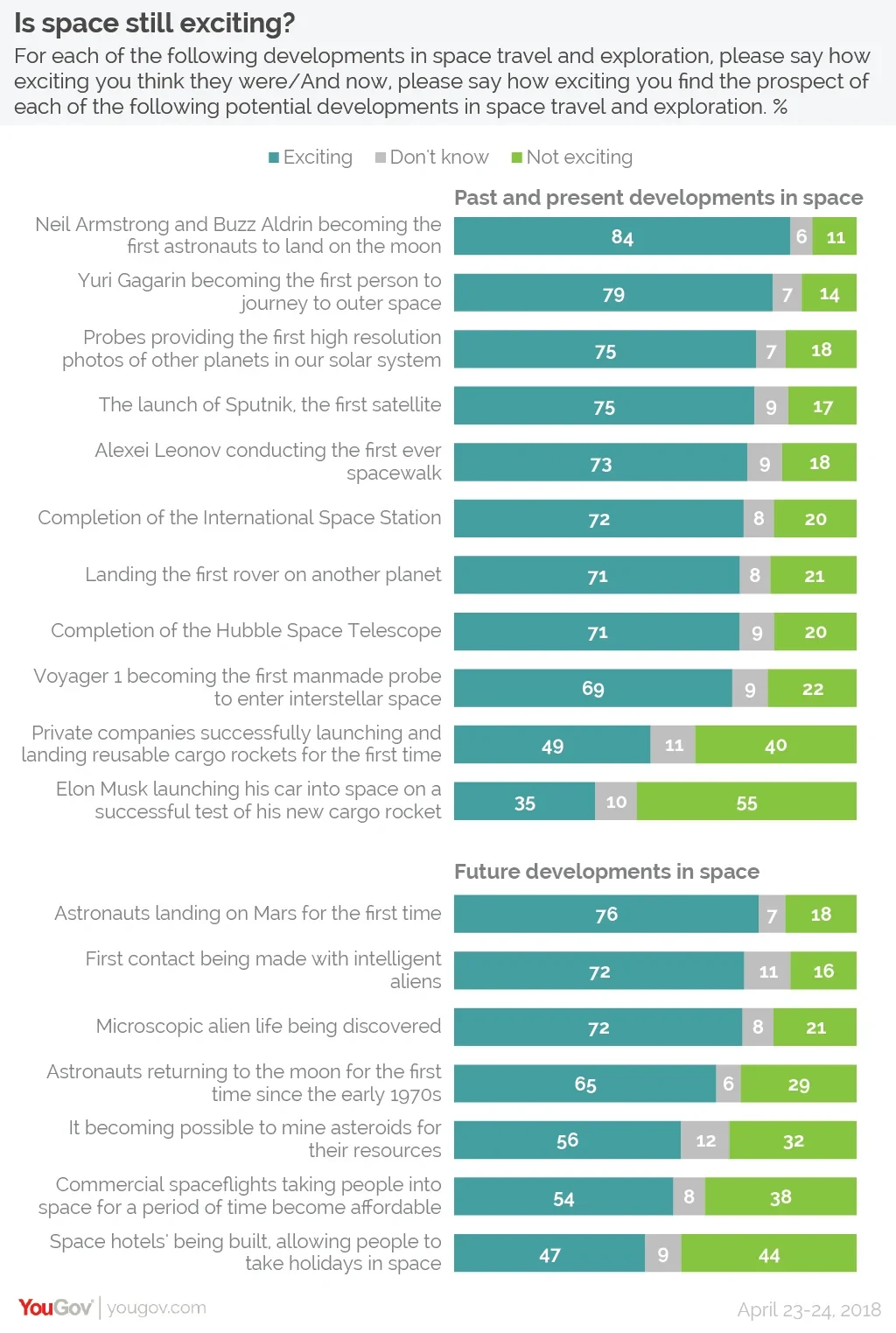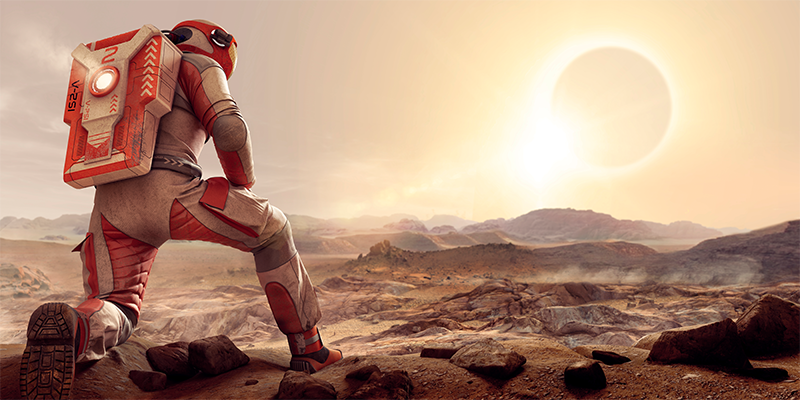YouGov and the V&A examine whether space is still exciting to the public
No man or woman has set foot on the moon since 1972. The space shuttle has been decommissioned, there are no serious plans to send a manned mission to Mars, and most space related news these days involves the efforts of tech billionaires to make commercially available cargo rockets.
It might seem, then, that the most exciting days of the space age are either behind us or far ahead of us.
As part of our work with the V&A museum for their “The Future is Here” exhibition, YouGov asked the British public about past, current and potential future developments in space travel and exploration to see whether the public has become less enamoured with human endeavour in the cosmos.
Past and current developments
It is true that the most exciting space developments happened some time ago – 84% of Brits consider the first moon landing to be exciting, as do 79% for Yuri Gagarin’s first voyage into space – the public are by no means unimpressed with current space developments.
The launch of Sputnik, the first ever satellite, in 1957 is seen as exciting by 75% of Brits – ironically at the time the launch was met with hysteria in the West as it marked Soviet superiority in space.
The first spacewalk, conducted by Soviet cosmonaut Alexei Leonov in 1965, is seen as exciting by 73% of people.

More recently, the completion of the International Space Station (astronauts first moved in in 2000) is seen as exciting by 72% of people, while successfully landing the first rover on another planet (Mars, in 1997) is exciting to 71% of Brits. The completion of the Hubble Space Telescope in 1990 is seen as exciting by a further 71% (although initially the project was something of a damp squib, with lens errors meaning the HST didn’t function as planned until 1993).
In terms of developments over the last few years, the Voyager 1 probe’s entry into interstellar space, generally held to have occurred in 2012, is considered exciting by 69% of Brits.
Even half of Britons (49%) find private companies successfully reusing cargo rockets for the first time to be exciting. However, only 35% of Brits found Elon Musk’s car-launching stunt to be exciting, compared to 55% who did not.
Future developments
When it comes to potential future developments Britons are, surprisingly, marginally more likely to be excited by the prospect of the first astronauts on Mars (76%) than they are about making first contact with intelligent life (72%).
(There is always the possibility that the potential for first contact coming in the form of an alien invasion has dampened the excitement for some people).
Similarly, it is perhaps surprising to see that the same proportion of people would consider discovering microscopic alien life exciting as they do making first contact (72%), although Britons are more likely to consider first contact to be “very” exciting.
A return to the moon is seen as exciting by 65% of Brits, while affordable commercial spaceflights are exciting to 54% of Brits and the ability to spend a holiday in orbit in a space hotel is exciting to 47%.
Even the relatively mundane concept of being able to mine asteroids for their resources is seen as exciting by 56% of Brits.
Young and old find different space developments exciting
Generally speaking, older people are more likely to find the past space developments exciting, while younger people are more likely to find current and future space developments exciting. Men are more likely to be excited about every single space development than women.
As part of our work for the V&A exhibition, YouGov has conducted a segmentation analysis which reveals how the British public can be split into six different groups regarding their attitudes toward the future. You can find out more about the groups here.
Out of the six groups, Tech Disciples are more likely than any other to find each of the space developments exciting – this is unsurprising as they are the group that is most enamoured with technology and also the most heavily male group. All-round Optimists are also noticeably more likely to be excited by the various developments.
Well-informed Worriers, by contrast, are the group most consistently likely to be the least impressed by the various space innovations.
Photo: Getty











